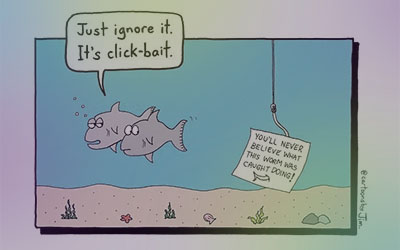12 types of conversations to avoid this holiday season

“I don’t have to attend every argument I am invited to.”
—author unknown
I read that quote on Twitter the other day and my entire being cheered, “Hallelujah!”
The election happened. The holidays are here. The end of the year is here. There is a lot of opportunity for conversations to turn into confrontations. We do not have to engage in every conversation put before us. We all get to decide whether or not the topic, or even the person, deserves our conversation.
It sounds harsh to say that a person may not deserve a conversation, I know. I love the world and humanity. You may, too. That love for others doesn’t mean everyone needs or deserves equal time from us, though. We have limited time and attention, and not every thread needs to be followed.
Here are some rhetorical cues to read and listen for in conversation and to avoid doing yourself, too. These signals often indicate that a conversation may be unproductive, pointless, doomed to failure, and emotionally draining. These cues can also help you keep from being hijacked emotionally: If we can see another person’s behavior, we are often less disrupted by it emotionally.
I hope you find this list helpful in taking care of yourself when you are with others at this time of year, in setting boundaries, and in not allowing others to hijack your emotions.
1. Avoidance of direct, specific questions
You might ask someone, for example, “Where did you hear that story?” The other person will refuse to answer: “It doesn’t matter! The point is…” An unwillingness to answer questions indicates an unwillingness to participate in a back-and-forth, give-and-take conversation. It is a sign that the other person wants to maintain the upper hand in order to win, by controlling the information discussed. This is, of course, by design: One person can prevent the conversation from going anywhere they don’t want it to go. Engaging further is a lot of energy, so give yourself permission to bow out. Try saying: “Let’s let this go, until you have a specific example we can talk about.”
2. Labels and broad, sweeping statements
Someone might preface a statement with language like “All you feminist types…” or “The real problem with you Millennials is…” This person already has a cognitive frame (feminists, Millennials) and has you inside of it. Anything you say will automatically be interpreted as fitting that frame, as evidence that reinforces the ideas someone else already has about you. This, of course, makes those ideas impossible to change with conversation (exactly as intended): If you say “I get paid 25% less than other people on my team and have the most seniority and experience,” the other person will say “You need to be grateful for a job and not worry about what other people are making, like I did at your age.”
3. Hyperbolic words like “always,” “never,” and “everything”
These are other flags that a conversation may not deserve your energy. Often we get triggered by exaggeration without noticing we are hijacked by it. One way to address this is to call it out, like so: “Hey, using always/never statements would lose you points in debate club. Nothing is ever “always” anything. Let’s stick to facts, okay?” You also have the option to realize they are communicating in a trigger and decide not to continue the conversation. Listen for these words, though. Doing so reduces your likelihood of being emotionally hijacked.
4. Lack of curiosity
Some folks will tell you what to think without asking you what you already think: “You need to stop trying to buck the system and go along.” This person is not genuinely interested in what you think or have to say, so much as they are in hearing themselves tell you what’s right. This is a well-worn habit especially around politics and dealing with conflict. Notice if someone is telling you what you should do without first knowing how you think. You can call that out: “Hey, you are telling me what to do without first asking me what I think. We have a couple of choices here. You can get curious about my WHY, or we can drop it.” Remember: You are not required to listen. You do not owe anybody an audience.
5. Lack of doubt
Doubt and skepticism — wanting to understand why before believing that — are healthy signs of intelligence. People who don’t tolerate doubt are not interested in the exchange of information so much as they are in preaching to the choir. If you’re not a fellow true believer yourself, you don’t rate as highly as someone who is. Genuine, honest conversation doesn’t require you to subscribe to a particular belief system before participating, so don’t feel obligated. Notice if the person is a knower or a learner; knowers can be exhausting. It may be better to keep the conversation light and casual.
6. Repeating the same thing, only louder
This tactic is the proverbial car tires spinning on ice this season: Rev the engine loudly, spin the tires faster, and the car still doesn’t move. Verbally, it will sound like declarations said over and over. The person in the family who has had three at-fault car accidents in the past year, for example, might repeat: “I’m the safest person you know!” This conversation is at a standstill and will stay there. Avoid taking the bait. It is not likely a conversation will change someone else’s mind in this context. Walk away, free yourself, and leave the car for the towing company or the spring thaw, whichever comes first.
7. Troll-like behavior
Every year, a friend of mine visits her family for Christmas. As her husband describes it, “Her dad basically trolls her the entire time. He says things he thinks will provoke an argument, because he likes to get a rise out of her.” Trolls don’t enjoy conversation that is not argumentative. If someone is talking about a trip they took or a book they enjoyed, trolls have nothing to say because they’re not provoking others, controlling emotional responses, and giving themselves power in doing so. Don’t take the bait. If a troll wants to get a rise out of people, let them go to law school and become a star litigator, if they can hang with those rhetorical wizards.
If you must deal with a troll, and you have a prankster vibe, agree with them. “That is the dumbest book. Why would you spend time reading it?” Try “You are probably right,” and no more. If they say, “I can’t believe you do not dye your hair,” try “Me either!” If they say, “You lost the election. You need to shut up and get onboard.” Say “Done.” (And I do mean you should say “Done,” and then be quiet and look at them.) I find the practice of agreeing with a troll particularly interesting if I can look at them when I say it: They show visible signs of dismay when they don’t get the negative energy they want. Over time, they often just leave me alone.
8. Cruelty, then denial
Some people say deliberately cruel things, then immediately deny they said it, or say you are a wimp for feeling hurt (which is, of course, exactly what they intended). Someone who has lost their job “was obviously underperforming and needed a wake-up call” or someone going through a divorce is “a whiner and a demanding nag.” We don’t allow children to treat others this way, so don’t allow grown adults to treat you this way. Name calling has no other purpose than to inflict pain, and you have no obligation to tolerate it. If someone calls you “too sensitive,” it is probably a sign that they say harsh crap all the time. I choose to walk away from this yet, if it takes place at a family event, we often feel inclined to hang out. I do the same thing I described in the example above: I deal with the cruelty by agreeing with just one word. If someone says, “You bleeding heart liberals have no clue,” I say “Guilty.” I can almost hear the balloon deflating. And then I change the subject. Another way is to call it out, for example: “I’m not interested in your criticism. Let’s talk about the game.” The other person might say, “You are so sensitive!” Simply respond: “Yup. Who do you think will be the highest scorer in the playoffs?”
9. Shell gaming
This often follows name calling, when people are either caught in the act or called out on their behavior. Shell gaming is when a person who does something cruel is offended for being caught. In their mind, the problem is not what they said or did, but the fact that other people noticed and want them to own up to it. These folks may also show an inability to apologize or fail to express remorse. The problem is not you, it’s them, but reminding them of their actions probably will not change their behavior. Ultimately, people who shell game want it both ways: They want to be able to behave badly and face no social consequences or discomfort for doing so. “I can’t believe you just threw my words back in my face…” Hmmm, it seems they don’t want their words either.
10. Pseudo psychology and pseudoscience
In a nutshell, this is any approach to psychology that doesn’t follow the scientific method, and things presented as scientific or fact based, that aren’t (respectively). Some popular examples are beliefs that vaccines cause autism and that climate change doesn’t exist. Both of these statements are demonstrably false. Related to pseudoscience is the tactic of citing statistics of questionable or mysterious origin. Some people lean on statistics as a rhetorical strategy to strengthen magical thinking, to make personal beliefs sound more like facts. You can’t argue with people who adhere more to fantasy than shared reality. It is not possible for you to share common ground, which is the basis of shared conversation. It may be better to talk about grandma’s casserole recipe. It takes a lot of energy to try and convince someone who is likely unwilling to be convinced.
11. Telling you what you want, contrary to what you specifically said you want
Here’s a common example: “You say you want to be single for a while, but nobody really wants that. You’re just saying that because you haven’t found someone to date yet.” You can reiterate a desire to stay single until you’re blue in the face, but you will rarely convince someone who believes they somehow know you better than you know yourself. Don’t let them maintain this false sense of authority over you. Do not engage. Or, try humor: “Perhaps I am single because you raised me wrong and totally failed as a parent.” (Okay. Maybe not that one.)
12. Drama statements
These take all forms, and some people don’t like conversation if it’s not dramatic. It may be “We’ll all be dead by next Christmas!” or “This sore throat is probably cancer” or “Unemployment is going to reach 80% under this guy, just wait.” Don’t raise the conversation to someone else’s dramatic level. Don’t up their ante. In these situations I often just realize the person is in fear and practice empathy and compassion.
The last sentence means the most to me. I find that folks often communicate poorly when they feel unheard, alone, or afraid. Often, the crap described above is just insecurity or someone who feels they must be right about things in order to feel safe. We all have to make good with how damaged we all are. That’s a fine feeling, but I used to let my sympathy create a lot of my own suffering in conversations that were just a waste of energy.
Sometimes the greatest gift I can give someone is my absence. If I am going to sit at somebody else’s table, I am not going to engage in draining conversations that have no point to them. Of course, I will, if someone I love needs to talk in order to get through something. On the other hand, engaging with Joe Schmo on Facebook who wants to have an election tirade isn’t a good use of my time.
We do not need to stay in every conversation in which we find ourselves. We can change the subject, deflate it, call it out, or change tables. We have so many options, and I hope you’ll find some of these helpful in the days ahead (though I also hope you won’t need them).


